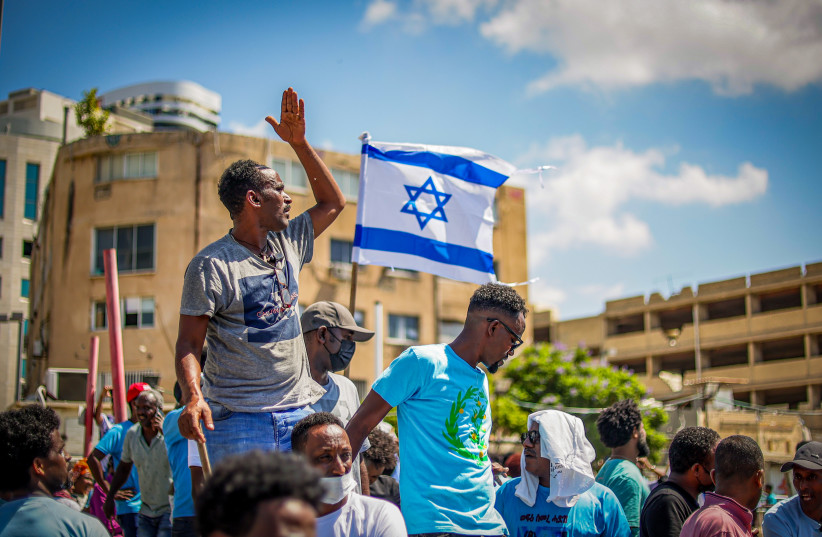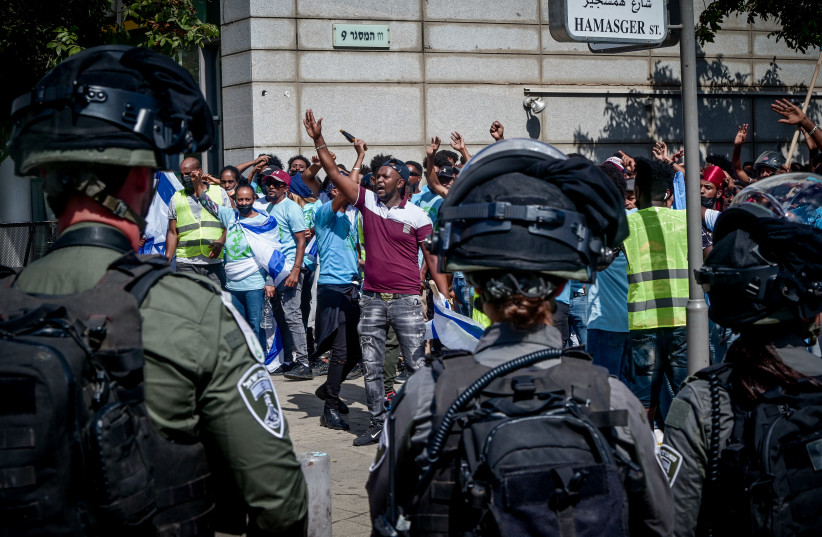by Yuval Barnea
Fighting broke out between Eritrean pro-government and anti-government protesters. Could it have been avoided?
 |
Eritrean asylum seekers who oppose the regime in
Eritrea protest outside a conference of regime supporters in south Tel
Aviv, September 2, 2023
(photo credit: ITAI RON/FLASH90)
|
Over 100 people have been injured during riots in South Tel Aviv after the Eritrean Embassy attempted to hold an event at a local venue.
Protesters claim they had contacted police numerous times to try and prevent the embassy from holding the event.
Fighting broke out between pro-government and anti-government protesters as well as the police, Saturday afternoon.
Eritreans complain of tracking, dispute on refugee status
Anti-government protesters have long complained about the embassy's attempts to monitor and track refugees from Eritrea.
Ongoing disputes with the Israeli government over refugee and asylum status have also been cited by protesters as part of the rationale for the riots.

Eritrean Embassy effects
Last week, the Swiss newspaper St. Galler Tagblatt reported that the Eritrean Embassy had been sending spies disguised as refugees to extort money from refugees.
The paper reported on multiple stories of people who had fled the country being tracked down and threatened to pay back "debts" or "taxes" they owed back home.
One woman, who fled with her young daughter, was sent a picture of her daughter on the way to school tagged with the phrase "we know everything. You have debts in your country!” This is related to the "diaspora tax" levied on citizens living abroad.
The 'North Korea of Africa'
Eritrea has often been called the "North Korea of Africa" for its draconian and totalitarian regime. The country has been ruled by President Isaias Afwerki since the early 1990s when Eritrean gained independence from Ethiopia. Afwerki has imprisoned and killed many of his political opponents.
Conscription into the military is mandatory, with all citizens, men and women, being required to serve. Unlike in Israel, or other countries with mandatory conscription, conscription has been indefinite.
Conscription could be military or civilian but the only way out is for women who marry and have children, sickness, disability, and "good connections" can also be ways to be discharged. The UN has compared this system to forced labor or slavery.
Joanie Margulies contributed to this report.
Yuval Barnea
Source: https://www.jpost.com/israel-news/article-757299
No comments:
Post a Comment